The music nominees for the 94th annual Academy Awards include Oscar veterans such as Diane Warren (her 13th nomination) and Hans Zimmer (his 12th), as well as six first-time nominees — Germaine Franco, Van Morrison, DIXSON and Beyoncé, and Billie Eilish and FINNEAS. Three of the nominated songs are by individual songwriters — Lin-Manuel Miranda, Warren and Morrison. This runs counter to the prevailing trend on the Billboard Hot 100, where collaborations rule. Meanwhile, Encanto was the only film to land nods for both best original song and best original score. It is the first film in three years to register in both categories — Black Panther and Mary Poppins Returns both achieved the feat at the 91st Oscars. Ahead, song and score nominees discuss what the recognition means leading up to the ceremony on March 27.

“Be Alive”
King Richard
Music and lyric by DIXSON and Beyoncé Knowles-Carter
[embedded content]
How did this song come about?
DIXSON: I’ve been submitting songs to Beyoncé and her team for awhile. I was pretty much shooting in the dark, hoping that somebody would hear something. And then I got the call to do the film and it became apparent to me that I was doing something that she liked.
Had you seen the film before you started writing?
No, but I knew the story. I was in elementary school, middle school when a lot of this happened for [tennis stars Venus and Serena Williams]. We talked about it in our classrooms and had dialogues with our parents about these girls from Compton who were taking the world by storm. It was a big deal in our household. I had an immediate connection to it. I just kind of pulled from that information and presented a rough demo.
How did that go?
I played it for [Beyoncé] in person. I was afraid to look at her while I was playing it, [but] her response was amazing. She had great things to say that encouraged me to keep pushing. Really, the track took shape after getting her vocals and her rewrites and her production notes. Beyoncé is an incredible producer/songwriter. I think we all know her as a performer, but what she is able to do with a song after she touches it changes the approach.
The song incorporates several of the film’s themes: Black pride, family pride, pride in accomplishment.
The lyrics are super-important to this record…I know what it’s like to fight for what you love. I think that’s a universal message. Obviously, there are some pointed things that are aimed at the themes of the film, but others are universal — if you work hard, you get results. – Paul Grein
“Dos Oruguitas”
Encanto
Music and lyric by Lin-Manuel Miranda
[embedded content]
How did you participate in the story process as the film was being developed?
My job is to raise my hand and let this room of animators and incredibly creative people know what music can do. Like, “Here’s what I think these songs can cover.” “Here’s where I can run with the ball and get some real estate.” Your job as the musical dramatist in this room is to say: “Here’s where I think music can elevate and help tell our story.”
Was it hard to choose one song for Oscar consideration?
I try not to think of it as, “What is the song that could win?” Because that part you really can’t control… What you try to do is submit the song that you feel best exemplifies the spirit of the movie.
What made you decide that “Dos Oruguitas” was that song?
That song covers the foundational emotion and moment when this family began, so it made sense organically as the song to submit. It also makes my wife cry, and my wife is a tough cry. It’s very hard to make her feel things (laughs). So, I just was like, “Well this is the song that feels like the heart of the movie.”
It’s been fascinating to watch people’s reactions to it. They’re like, “Oh Abuela, why can’t you let anyone live?!” And then you see what she went through, and it really forces a reconsideration. It’s the best example of what I think art can do, which is engender empathy. And that’s the moment when it happens. — Katie Atkinson and Keith Caulfield
“Down To Joy”
Belfast
Music and lyric by Van Morrison
Note: The following was edited from answers that Van Morrison gave to Nile Rodgers on Feb. 28 during a Songwriters Hall of Fame virtual event celebrating the nominees for best original song.
When were you first approached to write a song for the movie?
The first phone call, [director] Ken [Branagh] called me and explained it was his story… he sent me the script. I’m from East Belfast, he’s from North Belfast, so I drove to the area he grew up in and I remembered my recollections from that particular area where I had friends there way back. So, basically, a combination of the script and my recollections of that particular area.
Can you explain the meaning behind the lyrics?
I’m not really good at explaining meanings… Whatever way you want to interpret that. It can be visual. The lyric is, “She was standing there before me as I was coming down to joy.” It’s kind of meaningless babble, but it works.
Did you and Kenneth know each other before you did the film?
No, no, I’m a different generation. He’s much younger than me…but there were similar kind of motifs, having to leave. I had to leave several times before that, before he had to leave, but for reasons that were similar to why his father had to leave. I had to leave for work reasons. I had already left before what they call The Troubles.
Where did you record “Down to Joy?”
I recorded the track in Cardiff. When King Covid arrived, certain areas were shut down and certain areas were open… I have a rhythm section I work with in Cardiff, which was fairly open at that point. I did the rhythm track with the rhythm section [there] and I put horn and backing vocals in my studio on Belfast.
“No Time To Die”
No Time To Die
Music and lyric by Billie Eilish and Finneas O’Connell
[embedded content]
It must be strange to still be talking about this song after all this time.
Eilish: It has for sure been a long run. It’s kind of crazy. We recorded this song when I was 17 and I’m now 20.
Is it true you two used to write your own theme songs to James Bond films?
O’Connell: It is true. Over the years we always were thinking, “Oh man, wouldn’t it be a treat to get to write a Bond theme?”
Eilish: [We always thought] people who get to make Bond songs are the coolest people in the world. That’s the coolest thing you could possibly get to do. I never ever thought it would be a possibility, like not in a million years. I just dreamed of it. We would tell our team all the time if there’s ever another Bond movie, please tell them we really would like to at least try.
Film is a very collaborative process. Did you get notes?
O’Connell: Shockingly, we didn’t get a single lyrical rewrite note, which I thought was kind of amazing.
What kind of notes did you get?
O’Connell: I love this as a note – I’m glad they gave it. They really liked the intimacy of our demo. Once you throw a 70-piece orchestra on a song and huge, amazing rock and roll guitar, it’s easy to lose some of the intimacy that a demo with just a voice and a piano has. They really wanted us to make sure that was maintained.
Eilish: People think you need all the crazy things happening at once to make it feel big enough, but a lot of the time things are the most impactful when they’re really spacious and when there’s not much going on. It almost cuts deeper in a way. — P.G.
“Somehow You Do”
Four Good Days
Music and lyric by Diane Warren
[embedded content]
How does this nomination feel different from your previous ones?
Not a lot of people saw this movie, but it’s a great movie — and the song has a powerful message. The nomination itself is such a giant win because [we were competing with] the biggest artists and the biggest movies — and here’s my little movie and my song. It’s like the little engine that could, and that’s always the sweetest. The title is “Somehow You Do.” Well, somehow it did.
Were you a little surprised you made the cut this year?
I was on pins and needles this year. This is probably the most competitive year in recent history. It was definitely on that precipice. My song could have gone either way. I think I lost a year of my life in that 15 seconds or whatever [when they were announcing the nominees]. I’ve never been so nervous in my life — and I’ve never been so excited in my life. And my song was [announced] last. I have to start writing songs that start in letters closer to the top of the alphabet.
How did Reba McEntire come to record the song?
I imagined that Glenn Close [who plays the lead character in the film] would be listening to Reba. Reba has a strength about her, a resilience. It’s in her persona and it’s in her voice. You feel she’s living every note and every word.
This is your ninth nomination for a song you wrote all by yourself. Collaboration is the trend in songwriting, but you seem to do your best work alone.
I’m not the songwriting-by-committee person. That works for some people. It’s definitely not my thing. — P.G.

Don’t Look Up
Nicholas Britell
What was your approach to the movie?
Each of [director] Adam [McKay’s] projects has its own unique, nuanced tonal equation. On Don’t Look Up, the big question was what is that absurd flavor? The first thing I figured out was actually the opposite of that. I figured out this feeling of the sound of a reverence for science and knowledge and logic, and then I spent almost the rest of the time on the project trying to figure out the opposite of that sound.
How did you come up with the big band theme?
I had a conversation with Adam about climate change. I said, “It feels like we’re in World War II, but we’re going to lose. What if I wrote this for a mid-20th century big band, like you’d hear like in the war era, but it was totally crazy [with] a toy piano and dueling trumpets?”
What kind of shorthand have you and Adam developed over four films?
You figure out quicker if you’re right or wrong. There were many times where Adam was like, “This is a beautiful piece, [but] it’s not going to be in this movie.”
How do you write for the character of a comet?
We ended up not making music about the comet itself. This is a film where characters didn’t really have themes. The themes were tones and feelings [about] the ever increasing astonishment at how crazy the world is.
How did you channel the anxiety provoked in the movie?
The week we were recording, they were in London and I was working remotely. [Hurricane] Ida came through and we had historic rainfall in Manhattan. I had this huge flood here. We were talking about one of the cues and Adam was like, “I’m looking for a little more anxiety.” And I was like, “Adam, I assure you, I feel very anxious right now” as the ceiling is leaking. — Melinda Newman
Dune
Hans Zimmer
Dune got 10 nominations. What does it mean to have so many of your peers recognized?
That the way we worked was absolutely recognized with the one exception — it would have been nice for somebody to recognize that Denis [Villeneuve] has directed this picture. It didn’t quite direct itself because at the end of the day the collegial process does need a leader.
How did you approach the score?
I knew I didn’t want it to be another European romantic-era type score with a big orchestra. I wanted it to be the band that I play with all the time. Basically every instrument is a piece of technology of its time. We were making a movie set in some distant future on a distant planet, so why wouldn’t we build our own instruments?
The movie’s color scheme is so monochromatic. How do you deal with that musically?
I instantly took on the colors and the palette that Denis and [director of photography] Greig [Fraser] were working in. I needed to explain [to woodwind player Pedro Eustache], “Don’t make things too bright. Make things arid. Make things desert-y.” Pedro didn’t think it would work, but I kept saying to him, “Don’t play me a tune, give me the wind.”
You read Dune when you were young. How did that affect your composing?
I read this book at 13. Denis read it as teenager. And rather than looking at the material with the wisdom and the experience of having done all these movies, it just took us right back to being reckless and being a teenager and just ready to blow up the power grid. I’m not really happy unless something’s blowing up or something catches fire. — M.N.
Encanto
Germaine Franco
What was your reaction to your nomination?
They announced early so I thought, “If my phone doesn’t ring, I can keep sleeping.” Luckily, I was woken up by my boss, [Disney’s] Tom MacDougall, who called to say, “We’ve done it. You’ve done it.” Lin was texting me, “Let’s go!” Everyone was excited that we got three nominations.
What are your thoughts on the category not being presented live on the telecast?
It was unexpected. I’d love to be in the same room with my colleagues. That’s my hope and it’s the hope of the other nominees. Everybody worked so hard on their projects. I hope that somebody will change their mind and let us be together. It’s unfortunate, but I’m focusing on the positive. I’m happy to be nominated.
You’re the first woman to score a Disney animated film with Encanto, and the first Latina to score a nomination in this category.
I’m proud to represent women of color. Young female composers all over the world are writing to me. Being the first isn’t something I thought about when I was doing it, I was just doing my best job. It’s important that I’m the first but not the last, and it’s important for others to see people who look like us behind the scenes. The door is now open.
What would you say is Encanto’s musical legacy?
The legacy is that people from all around the globe are still singing and dancing along to the songs. They are learning about the beauty of Latin music, which is a treasure chest of incredible rhythms. Not everyone understands how wide and diverse the rhythms and instruments are. Kids will be enjoying this film for years and years, and that just means that our ancestors and their voices are being heard. That’s the legacy. — Griselda Flores
Parallel Mothers
Alberto Iglesias

Eleanor Shakespeare
What was your reaction to your nomination?
It was very surprising for me, because it’s a Spanish film — it’s not so easy to be recognized with such big films around. It was one of the best experiences for me doing music, so at the same time, I hoped it could happen.
What were you trying to accomplish with this score?
The film makes a path from childbirth until the common grave at the end. In the middle is Janice, [played by] Penélope Cruz, and the music is breathing with her, understanding that she is lying in moments, starting to know something she doesn’t want to recognize. That [adds] suspense; I tried to make evident the parallelism between light and shadows — life and death.
What are your thoughts on the category not being presented live on the telecast?
I don’t like it at all. Not only for the composers’ categories but editors’ categories — it’s better to celebrate all the people there. I would like to speak to the other composers, and if we can make a kind of pressure to change that, we will. — Josh Glicksman
The Power of the Dog
Jonny Greenwood

Eleanor Shakespeare
How did you learn of your Oscar nomination?
I heard about it on Pitchfork via Twitter. It’s very flattering of course — there’s a sense of people being excited for me, which is kind of them. I feel rather detached from the fuss, but am still very happy to see the film’s music, and the people that played it, getting attention.
This is your second nomination in the category. What would a win mean?
It would mean having a statue in my sitting room that friends and visitors would be keen to see, hold and improvise amusing acceptance speeches to. That’d be nice. And it’d give the film’s reputation another boost, meaning more people seeing it and hearing the score — so that’s all good, obviously. Jane [Campion] is a lovely, talented director and it’s been a totally enjoyable experience. Crazy that I’ve not met her in person yet. The distance and the virus meant that instead, she sent long, thoughtful, hand-written notes via email — a very heartfelt way to communicate at a time when we were all feeling so isolated.
What appealed to you about this project?
I liked the very visceral script. It’s not often you have to compose music to bovine castration and the complexity of Benedict Cumberbatch’s character: It felt there was an unusual tone of music needed, and that that would be enjoyable to think through.
What stands out most about scoring this film?
The mistakes — trying to write contemporary classical music for banjo, which led to interesting alternatives, like learning to play my cello like a banjo. People still think it’s a guitar in the score… I just wish it had frets on it. — Lyndsey Havens
A version of this story originally appeared in the March 12, 2022, issue of Billboard.
[flexi-common-toolbar] [flexi-form class=”flexi_form_style” title=”Submit to Flexi” name=”my_form” ajax=”true”][flexi-form-tag type=”post_title” class=”fl-input” title=”Title” value=”” required=”true”][flexi-form-tag type=”category” title=”Select category”][flexi-form-tag type=”tag” title=”Insert tag”][flexi-form-tag type=”article” class=”fl-textarea” title=”Description” ][flexi-form-tag type=”file” title=”Select file” required=”true”][flexi-form-tag type=”submit” name=”submit” value=”Submit Now”] [/flexi-form]


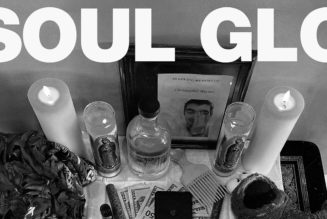
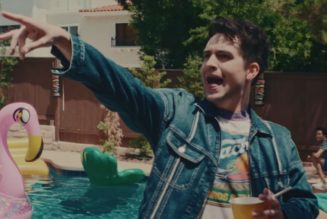

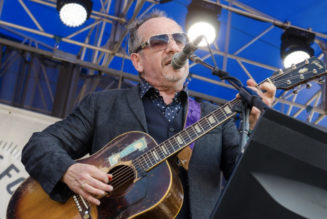
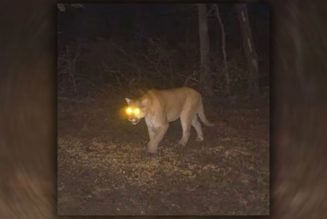

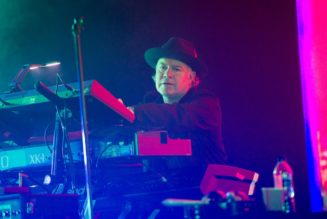
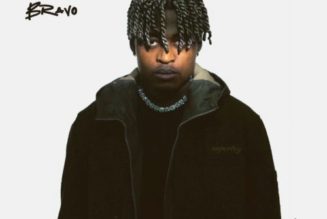
Tagged: 2022 Oscars, 2022 Oscars Preview, 94th Academy Awards, Awards, entertainment blog, music, music blog, Oscars